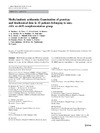Identificador persistente para citar o vincular este elemento:
https://accedacris.ulpgc.es/jspui/handle/10553/49375
| Campo DC | Valor | idioma |
|---|---|---|
| dc.contributor.author | Merinero, B. | en_US |
| dc.contributor.author | Pérez, B. | en_US |
| dc.contributor.author | Pérez-Cerdá, C. | en_US |
| dc.contributor.author | Rincón, A. | en_US |
| dc.contributor.author | Desviat, L. R. | en_US |
| dc.contributor.author | Martínez, M. A. | en_US |
| dc.contributor.author | Sala, Ruiz P. | en_US |
| dc.contributor.author | García, M. J. | en_US |
| dc.contributor.author | Aldamiz-Echevarría, L. | en_US |
| dc.contributor.author | Campos, J. | en_US |
| dc.contributor.author | Cornejo, V. | en_US |
| dc.contributor.author | del Toro, M. | en_US |
| dc.contributor.author | Mahfoud, A. | en_US |
| dc.contributor.author | Martínez-Pardo, M. | en_US |
| dc.contributor.author | Parini, R. | en_US |
| dc.contributor.author | Pedrón, C. | en_US |
| dc.contributor.author | Peña-Quintana, L. | en_US |
| dc.contributor.author | Pérez, M. | en_US |
| dc.contributor.author | Pourfarzam, M. | en_US |
| dc.contributor.author | Ugarte, M. | en_US |
| dc.date.accessioned | 2018-11-24T06:51:20Z | - |
| dc.date.available | 2018-11-24T06:51:20Z | - |
| dc.date.issued | 2008 | en_US |
| dc.identifier.issn | 0141-8955 | en_US |
| dc.identifier.uri | https://accedacris.ulpgc.es/handle/10553/49375 | - |
| dc.description.abstract | Methylmalonic acidaemia (MMA) is a genetic disorder caused by defects in methylmalonyl-CoA mutase or in any of the different proteins involved in the synthesis of adenosylcobalamin. The aim of this work was to examine the biochemical and clinical phenotype of 32 MMA patients according to their genotype, and to study the mutant mRNA stability by real-time PCR analysis. Using cellular and biochemical methods, we classified our patient cohort as having the MMA forms mut (n = 19), cblA (n = 9) and cblB (n = 4). All the mut (0) and some of the cblB patients had the most severe clinical and biochemical manifestations, displaying non-inducible propionate incorporation in the presence of hydroxocobalamin (OHCbl) in vitro and high plasma odd-numbered long-chain fatty acid (OLCFA) concentrations under dietary therapy. In contrast, mut (-) and cblA patients exhibited a milder phenotype with propionate incorporation enhanced by OHCbl and normal OLCFA levels under dietary therapy. No missense mutations identified in the MUT gene, including mut (0) and mut (-) changes, affected mRNA stability. A new sequence variation (c.562G>C) in the MMAA gene was identified. Most of the cblA patients carried premature termination codons (PTC) in both alleles. Interestingly, the transcripts containing the PTC mutations were insensitive to nonsense-mediated decay (NMD). | en_US |
| dc.language | eng | en_US |
| dc.relation.ispartof | Journal of Inherited Metabolic Disease | en_US |
| dc.source | Journal of Inherited Metabolic Disease[ISSN 0141-8955],v. 31(1), p. 55-66 (Febrero 2008) | en_US |
| dc.subject | 32 Ciencias médicas | en_US |
| dc.subject | 320102 Genética clínica | en_US |
| dc.subject | 241108 Metabolismo humano | en_US |
| dc.subject.other | Methylmalonic acidaemia | en_US |
| dc.subject.other | Adenosylcobalamin | en_US |
| dc.subject.other | Cohort studies | en_US |
| dc.subject.other | Cell line | en_US |
| dc.title | Methylmalonic acidaemia: Examination of genotype and biochemical data in 32 patients belonging to mut, cblA or cblB complementation group | en_US |
| dc.type | info:eu-repo/semantics/article | en_US |
| dc.type | Article | en_US |
| dc.identifier.doi | 10.1007/s10545-007-0667-y | en_US |
| dc.identifier.scopus | 40749148973 | - |
| dc.contributor.authorscopusid | 6602854012 | - |
| dc.contributor.authorscopusid | 7101818958 | - |
| dc.contributor.authorscopusid | 6603860348 | - |
| dc.contributor.authorscopusid | 35488912100 | - |
| dc.contributor.authorscopusid | 7003747320 | - |
| dc.contributor.authorscopusid | 57199461589 | - |
| dc.contributor.authorscopusid | 35084305100 | - |
| dc.contributor.authorscopusid | 56480858800 | - |
| dc.contributor.authorscopusid | 6603581047 | - |
| dc.contributor.authorscopusid | 57202591404 | - |
| dc.contributor.authorscopusid | 6602502568 | - |
| dc.contributor.authorscopusid | 57200780194 | - |
| dc.contributor.authorscopusid | 6602237336 | - |
| dc.contributor.authorscopusid | 7003570900 | - |
| dc.contributor.authorscopusid | 6701709593 | - |
| dc.contributor.authorscopusid | 57200258861 | - |
| dc.contributor.authorscopusid | 6603266503 | - |
| dc.contributor.authorscopusid | 7403043329 | - |
| dc.contributor.authorscopusid | 7003352774 | - |
| dc.contributor.authorscopusid | 7005900322 | - |
| dc.description.lastpage | 66 | en_US |
| dc.description.firstpage | 55 | en_US |
| dc.relation.volume | 31 | en_US |
| dc.investigacion | Ciencias de la Salud | en_US |
| dc.type2 | Artículo | en_US |
| dc.description.numberofpages | 12 | en_US |
| dc.utils.revision | Sí | en_US |
| dc.date.coverdate | Febrero 2008 | en_US |
| dc.identifier.ulpgc | Sí | en_US |
| dc.contributor.buulpgc | BU-MED | en_US |
| dc.description.jcr | 2,691 | - |
| dc.description.jcrq | Q2 | - |
| dc.description.scie | SCIE | - |
| item.fulltext | Con texto completo | - |
| item.grantfulltext | open | - |
| crisitem.author.dept | GIR IUIBS: Nutrición | - |
| crisitem.author.dept | IU de Investigaciones Biomédicas y Sanitarias | - |
| crisitem.author.dept | Departamento de Ciencias Clínicas | - |
| crisitem.author.orcid | 0000-0001-6052-5894 | - |
| crisitem.author.parentorg | IU de Investigaciones Biomédicas y Sanitarias | - |
| crisitem.author.fullName | Peña Quintana, Luis | - |
| Colección: | Artículos | |
Citas SCOPUSTM
54
actualizado el 08-jun-2025
Citas de WEB OF SCIENCETM
Citations
43
actualizado el 01-feb-2026
Visitas
36
actualizado el 10-ene-2026
Descargas
12
actualizado el 10-ene-2026
Google ScholarTM
Verifica
Altmetric
Comparte
Exporta metadatos
Los elementos en ULPGC accedaCRIS están protegidos por derechos de autor con todos los derechos reservados, a menos que se indique lo contrario.
